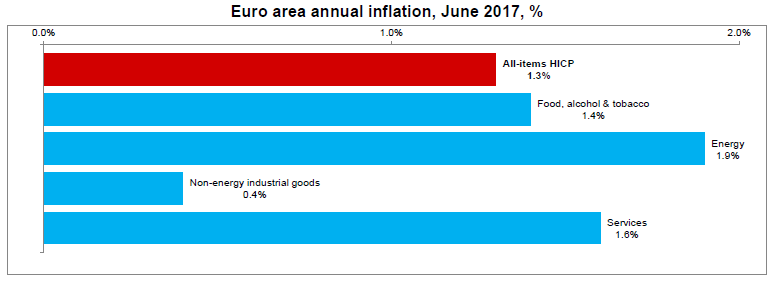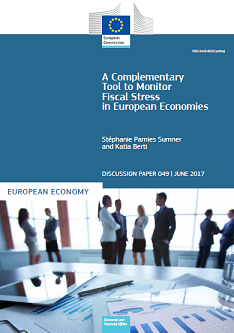Pastore, Francesco, (2017), “Getting It Right: Youth Employment Policy within the EU”, IZA Institute of Labor Economics, Policy Paper Series, IZA Policy Paper No.127, May This essay discusses the determinants of youth unemployment within the EU and then the alternative policy options currently at stake. We argue that youth unemployment regards especially some peripheral EU countries and is due to a mix of factors that should be addressed more vigorously, …Read More
The European banking union at three: A toddler with tantrums
Beck, Thorsten, (2017), “The European banking union at three: A toddler with tantrums”, Vox Eu, 3 July 2017 A little less than three years ago, the bank regulatory framework in the Eurozone seemed to have reached a decisive moment, with the completion of the Comprehensive Assessment and the establishment of the Single Supervisory Mechanism and Single Resolution Mechanism, and the implementation of the Bank Recovery and Resolution Directive (BRRD). Taxpayer-funded …Read More
Fiscal Reforms, Long-term Growth and Income Inequality
Correa-Caro, Carolina, Ormaechea, Santiago Acosta, Komatsuzaki, Takuji, (2017), “Fiscal Reforms, Long-term Growth and Income Inequality”, IMF Working Paper 17/145, 29 June We estimate the effects on growth of nine fiscal reform episodes in seven high-income countries using the Synthetic Control Method. These episodes are selected using an indicator-based approach applied to the evaluation of growth-friendly fiscal reforms during 1975-2010. We find that in reform countries the annual growth rate of real GDP …Read More
Reflecting on how to run €MU more effectively
Begg, Iain, (2017), “Reflecting on how to run €MU more effectively”, LSE EUROPP, 29 June Earlier this year, the European Commission published a consultative White Paper setting out a number of scenarios on the Future of Europe and undertook to nourish the ensuing debates by releasing a series of Reflection Papers on key dimensions of the development of the Union. Among these is the recently-released one on the deepening of …Read More
Eurozone or EU budget? Confronting a complex political question
Wolff, Guntram B., (2017), “Eurozone or EU budget? Confronting a complex political question”, Bruegel, 29 June The European Commission has just published its reflection paper on the future of the EU budget. It touches on many topics, but at its heart the paper is agonising over one political question: Should there be a euro-area budget distinct from the overall EU budget? And if so, what kind of interplay will there …Read More
Euro area annual inflation down to 1.3%
Eurostat/Euro area annual inflation down to 1.3%/30 June 2017 Euro area annual inflation is expected to be 1.3% in June 2017, down from 1.4% in May 2017, according to a flash estimate from Eurostat, the statistical office of the European Union. Looking at the main components of euro area inflation, energy is expected to have the highest annual rate in June (1.9%, compared with 4.5% in May), followed by services …Read More
A Complementary Tool to Monitor Fiscal Stress in European Economies
Pamies Sumner, Stéphanie, Berti, Katia, (2017), “A Complementary Tool to Monitor Fiscal Stress in European Economies”, European Commission, Directorate-General for Economic and Financial Affairs Discussion Paper No 049, June This paper presents an indicator of fiscal distress for European economies based on a multivariate regression analysis (logit modelling, the L1 indicator) and on a recently updated dataset of fiscal stress episodes. This indicator presents some interesting features: relying on a …Read More
EU – Fateful Year 2017
Vorbach, Judith, (2017), “EU – Fateful Year 2017″, Social Europe, 29 Ιουνίου Economic policy has predominantly been run on neoliberal lines, notably since the 1970s. This trend has manifested itself in the liberalization of markets, cuts in public investment, de-regulation, privatization and marginalization of trade unions. The credo runs: The less government interferes in the market and the more it improves the framework conditions for companies (aka supply side), the …Read More
Do the Troika’s financial assistance programs reduce systemic risk? Evidence from Eurozone countries
Moutsianas, Konstantinos A., Kosmidou, Kyriaki, (2016), “Do the Troika’s financial assistance programs reduce systemic risk? Evidence from Eurozone countries”, International Journal of Banking, Accounting and Finance, 7(2), pp. 149-171 The European sovereign debt crisis has forced many countries in the Eurozone to request financial assistance from the European Central Bank (ECB) and the International Monetary Fund (IMF) to prevent the contagion of the crisis to national banking systems. In the …Read More
How To Get Rid Of Germany’s Excessive Current Account Surplus
Horn, Gustav, (2017), “How To Get Rid Of Germany’s Excessive Current Account Surplus”, Social Europe, 26 June The demand is frequently made that wages in Germany should grow more strongly than up till now. The hope is that this would raise the price of exports and, thereby, foreign demand for German goods would drop. This alone would reduce the surplus in the current account. There would be an even stronger effect …Read More






